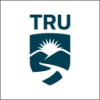
Sessional - Faculty SOCW 4020
DUTIES
The School of Social Work and Human Service (Faculty of Education and Social Work) at Thompson Rivers University invites applications for two sessional lecturers to teach the course SOCW 4020 Social Work Field Practice (0,2,0) 9 credits during Summer Session 1 (May 6, 2024 to August 9, 2024).
SOCW 4020 Calendar Description
Students apply ethics, theory, and research to social work practice while developing professional practice skills. This course is completed at the end of the student's studies in the Bachelor of Social Work degree program and develops analytic and practical abilities sufficient to begin professional practice.
The practicum is a structured educational experience that includes specific learning objectives; professional supervision is provided in an evaluative, disciplined, and reflective manner.
Through seminar discussions, students analyze inequality, injustice, and oppression in practice. This practicum is normally completed four days a week, includes a seminar, and is a total of 432 hours.
Educational Objectives / Learning Outcomes
1. Demonstrate an ability to analyze the power relations, authority systems and culture of the placement's service delivery system and to work within it.
2. Demonstrate an ability to work collaboratively with a wide range of formal and informal community resources to the benefit of clients.
3. Demonstrate an ability to integrate social work values, ethics and knowledge in personal and professional interactions.
4. Demonstrate an ability to practice social work effectively with clients and client groups (ie. individuals, families, groups, organizations, and communities) in a culturally sensitive manner and specifically including Indigenous peoples.
5. Demonstrate an ability to make constructive use of supervision and consultation, and to work collaboratively with agency and community teams.
6. Demonstrate an ability to manage a student workload and maintain accurate, and effective written work.
7. Demonstrate an open, outreaching approach to learning, self-awareness and professional development, and a willingness to deal with personal challenges that surface in the practicum.
8. Demonstrate an ability to articulate one's own practice philosophy and its relationship to an anti-oppressive, culturally sensitive practice.
ABOUT THOMPSON RIVERS UNIVERSITY
Thompson Rivers University (TRU) campuses are on the traditional lands of the Tk'emlúps te Secwépemc (Kamloops campus) and the T’exelc (Williams Lake campus) within Secwépemc'ulucw, the traditional and unceded territory of the Secwépemc people.
Our region also extends into the territories of the Stat’imc, Nlaka’pamux, Nuxalk, Tsilh’qotin, Dakelh, and Métis peoples.
For over 50 years Thompson Rivers University has taken pride in providing an excellent education to students with a variety of backgrounds and perspectives who are at various stages of their learning journey.
TRU strives to become the University of Choice for 's Indigenous students. Offering both on-campus, regional and online programs, TRU attracts a significant Indigenous student body as well as students and faculty from across Canada and internationally.
In Kamloops (from the Secwepemc word for this area : Tk'emlups meeting of the waters ), the main campus overlooks the junction of the North and South Thompson Rivers, from which the university gets its name.
TRU is a comprehensive, learner-centered, environmentally responsible institution that serves its regional, national, and international learners and their communities through high quality and flexible education, training, research and scholarship.
From traditional academics to trades, from certificates to graduate degrees, TRU offers students choice from over 140 on-campus programs and 50 Open Learning programs.
More than 28,500 students study on campuses in Kamloops and Williams Lake, or in distance or online courses and programs through Open Learning.
Research, creation and innovation thrive in TRU’s open, flexible learning environment. TRU gained Platinum and the highest over-all sustainability score in the prestigious and globally recognized AASHE STARS report.
TRU is the 4th largest university in British Columbia, is a member of the Research Universities Council of British Columbia, and has its main campus situated in beautiful Kamloops.
The Kamloops campus is a midsize, modern, comprehensive and stunning campus. Kamloops is a vibrant city of 100,000 located within just three hours’ driving distance from Vancouver or 45 minutes by air.
Kamloops offers wonderful beauty, weather, amenities, culture, friendliness, and affordability.
To learn more about living in Kamloops and about Thompson Rivers University please visit our Web Site : Living in Kamloops and working at the TRU.
THE TRU SCHOOL OF SOCIAL WORK AND HUMAN SERVICE
The School of Social Work and Human Service offers a wide range of academic programs to approximately 250 students on two campuses and more than 100 students through Open Learning.
Programs include : Bachelor of Social Work Degree, the Human Service Diploma, Education Assistant and Community Support Certificate (offered at both the Kamloops and Williams Lake campuses), the Social Service Worker Certificate (offered through Open Learning), and the Human Service Diploma (offered through Open Learning).
The School also has plans to offer a Master of Social Work degree.
In accordance with the university's equity plan members of the following designated groups : Indigenous peoples, persons with disabilities, women, and members of visible minorities are encouraged to apply and self-identify.
QUALIFICATIONS
- The minimum academic qualification is a Master's degree in Social Work; a PhD or earned doctorate in a relevant discipline with a graduate degree in social work is preferred.
- Successful teaching experience in post-secondary institutions preferred.
- A minimum of five years of related practice experience and / or educational specialization relevant to the content of this course is required.
- Excellent organizational, interpersonal and communication skills required.
- Demonstrated experience in integrating Indigenous knowledge and teaching methods (TRC CA 62).
- Proven skills in building student capacity for intercultural understanding, empathy, and mutual respect (TRC CA 63).
- Teaching excellence, including developing culturally appropriate curricula (TRC CA 10).
